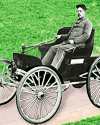
On 21 Sep 1895, the first American auto manufacturer with regular production opened for business. Was that Henry Ford’s successful factory? No. Ford had not yet put together even his first quadricycle. In fact, it was the Duryea Motor Wagon Company that first started building cars is the U.S.
Starting in 1893, Frank Duryea and his brother, Charles, designed what is believed to be the first gasoline-powered automobile built in the U.S. Since it didn’t need a horse, it was called a “horseless carriage,” which took its first short test drive in Springfield, Mass.
Although the first in the U.S. to operate building cars as a business, the Duryeas’ enterprise did not develop into a major manufacturer.
If you do not recognize the names of the Duryeas, and want some more background on their times, you may like to read the first chapter, “Anticipations of the Motor Car” from The Automobile Book (1915), co-written by Charles Duryea.

On 21 Sep 1936, Frank Hornby died, the English toy manufacturer who invented the Meccano construction toy with its familiar perforated metal strips in 1901 (copied by Erector Set). He introduced Hornby model trains in 1920 and the Dinky range of model cars from 1933. Today's book pick is: The Toy Story: The Life and Times of Inventor Frank Hornby, by Anthony McReavy who shows Hornby as a passionate and inspired man, responsible for the toys which shaped generations of children. The author's story also encompassed social history, politics and changing attitudes towards children in this beautifully written life story of an unsung hero.
It is available from Amazon, typically about New from $108.00. Used from $3.00. (As of earlier time of writing - subject to change.)
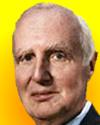 | I suspect that the most important effect of World War II on physical science lay in the change in the attitude of people to science. The politicians and the public were convinced that science was useful and were in no position to argue about the details. A professor of physics might be more sinister than he was in the 1930s, but he was no longer an old fool with a beard in a comic-strip. The scientists or at any rate the physicists, had changed their attitude. They not only believed in the interest of science for themselves, they had acquired also a belief that the tax-payer should and would pay for it and would, in some unspecified length of run, benefit by it. |
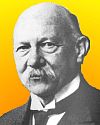 | According to my views, aiming at quantitative investigations, that is at establishing relations between measurements of phenomena, should take first place in the experimental practice of physics. By measurement to knowledge [door meten tot weten] I should like to write as a motto above the entrance to every physics laboratory. |
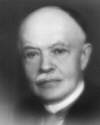 | The native hospital in Tunis was the focal point of my research. Often, when going to the hospital, I had to step over the bodies of typhus patients who were awaiting admission to the hospital and had fallen exhausted at the door. We had observed a certain phenomenon at the hospital, of which no one recognized the significance, and which drew my attention. In those days typhus patients were accommodated in the open medical wards. Before reaching the door of the wards they spread contagion. They transmitted the disease to the families that sheltered them, and doctors visiting them were also infected. The administrative staff admitting the patients, the personnel responsible for taking their clothes and linen, and the laundry staff were also contaminated. In spite of this, once admitted to the general ward the typhus patient did not contaminate any of the other patients, the nurses or the doctors. I took this observation as my guide. I asked myself what happened between the entrance to the hospital and the wards. This is what happened: the typhus patient was stripped of his clothes and linen, shaved and washed. The contagious agent was therefore something attached to his skin and clothing, something which soap and water could remove. It could only be the louse. It was the louse. |
| Before you look at today's web page, see if you can answer some of these questions about the events that happened on this day. Some of the names are very familiar. Others will likely stump you. Tickle your curiosity with these questions, then check your answers on today's web page. | |
| Births | |
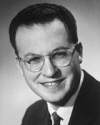 | Donald A. Glaser, born 21 Sep 1926, was an American physicist, winner of the Nobel Prize for Physics in 1960 for his invention, used to observe the behaviour of subatomic particles. What was this scientist's invention? |
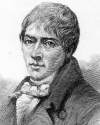 | John McAdam, born 21 Sep 1756, was a Scottish inventor who developed new methods of road construction. Can you give one, two, or perhaps three, eponyms for his inventions (words formed from this scientist's name)? |
| Deaths | |
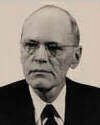 | Earle Dickson (1892-1961) found his wife prone to kitchen accidents such as cuts or burns, and he frequently was dressing her small wounds with cotton gauze and adhesive tape. He devised a new dressing. How did this lead to a now familiar product? |
| Events | |
 | On 21 Sep of a certain year, the Duryea Motor Wagon Company became the first auto manufacturer to open in the U.S. The Duryea brothers had built the first automobile two years earlier, a horseless carriage, believed to be the first gasoline-powered automobile built in the United States. In what decade did their company open? |
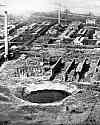 | On 21 Sep 1921, a huge explosion at a factory at Oppau, Germany, caused 500 deaths and destruction of hundreds of neighboring houses. The crater was 250-ft diam. and 50-ft deep. What caused this explosion? |
Fast answers for the previous newsletter for September 20: table salt • Thermos • mumps • uranium • decade containing the year 1954 • elevator with safety fall-arrest device.
 If you enjoy this newsletter, the website, or wish to offer encouragement or ideas, please send feedback by using your mail reader Reply button.
If you enjoy this newsletter, the website, or wish to offer encouragement or ideas, please send feedback by using your mail reader Reply button. Your click on a Facebook, StumbleUpon, or other social button on the site webpages is also a welcome sign of appreciation. Thank you for using them.
© This newsletter is copyright 2020 by todayinsci.com. Please respect the Webmaster's wishes and do not put copies online of the Newsletter — or any Today in Science History webpage. (If you already have done so, please remove them. Thank you.) Offline use in education is encouraged such as a printout on a bulletin board, or projected for classroom viewing. Online, descriptive links to our pages are welcomed, as these will provide a reader with the most recent revisions, additions and/or corrections of a webpage. For any other copyright questions, please contact the Webmaster by using your mail reader Reply button.
--
If you do not want to receive any more newsletters, Unsubscribe
To update your preferences and to unsubscribe visit this link
Executive Real Estate Business Class
-
"It was like a man with wings. It wasn't like anything you'd see on TV or in a monster movie." ...
About the publisher
Search This Blog
Blog Archive
-
▼
2020
(1542)
-
▼
September
(173)
- SCIENCE: Just how big is Everest?
- The Latest News from History News Network
- On This Day for September 30 - Munich Agreement si...
- We are called to return to our foundational values...
- Newsletter for Wednesday 30 September.
- They Killed His Wife And Left Him For Dead – Then ...
- TRAVEL: Telling new truths about America’s histori...
- Make learning fun with Nat Geo Kids magazine! Subs...
- On This Day for September 29 - British mandate in ...
- Newsletter for Tuesday 29 September.
- Special Edition: Dinosaurs come to life like never...
- September 29: On This Day in History
- HISTORY: America's most endangered historic sites
- New This Week on History News Network
- On This Day for September 28 - California “discove...
- Newsletter for Monday 28 September.
- September 28: On This Day in History
- FAMILY: What do I tell my kids about wildfires and...
- On This Day for September 27 - Norman Conquest beg...
- Newsletter for Sunday 27 September.
- September 27: The Rosetta Stone, E=mc² and Fear as...
- The Compass: Indonesia
- On This Day for September 26 - First televised U.S...
- Newsletter for Saturday 26 September.
- September 26: Frances Drake's Circumnavigation, th...
- CORONAVIRUS UPDATE: Is this the end of the office?
- PHOTOGRAPHY: They feed us. Now we see them.
- The assassination of Lord Mountbatten | Enola Holm...
- 39,500-Year-Old Cave Bear Discovered Perfectly Pre...
- On This Day for September 25 - Pacific Ocean sight...
- The Roundup Top Ten for September 25, 2020
- Newsletter for Friday 25 September.
- September 25: Battle of Stamford Bridge, Remote Co...
- ANIMALS: These mighty elephants find peace
- On This Day for September 24 - Federal troops sent...
- Newsletter for Thursday 24 September.
- Global cartels taking control of the world + HPA B...
- September 24: Decline of the Byzantine Empire, Ope...
- YOUR WEEKLY ESCAPE: America's oldest mystery
- SCIENCE: How to cope with a big death toll
- The Latest News from History News Network
- On This Day for September 23 - Neptune observed, J...
- Newsletter for Wednesday 23 September.
- September 23: Nintendo, the Start of Data Processi...
- TRAVEL: How will America’s state parks survive?
- Matching gift opportunity for Sumatran rhinos
- On This Day for September 22 - Solidarity formed, ...
- Newsletter for Tuesday 22 September.
- September 22: Salem Witch Trials, Iraq's Invasion ...
- HISTORY: Who can replace RBG?
- Feed their curiosity! Get Nat Geo Kids magazine fo...
- New This Week on History News Network
- On This Day for September 21 - Joseph Smith's visi...
- Newsletter for Monday 21 September.
- September 21: France, China and a Sheep Shearing R...
- FAMILY: Don’t tell your kids outdated stuff about ...
- On This Day for September 20 - Rome incorporated i...
- Pro-life is not Politics + Vickie Travis's message...
- Newsletter for Sunday 20 September.
- September 20: Attila the Hun, Magellan's Circumnav...
- The Compass: Chile
- Matching gift opportunity for Sumatran rhinos
- On This Day for September 19 - George Washington's...
- Newsletter for Saturday 19 September.
- CORONAVIRUS UPDATE: Young people are spreading the...
- September 19: 1st Country to Grant Women the Right...
- PHOTOGRAPHY: How to make dinos look new (CORRECTED)
- Quick Note: How to Save Videos by Downloading
- PHOTOGRAPHY: How to make dinos look new
- The Mayflower | Medieval spiders | Ancient Egypt f...
- When She Found Out Her Boyfriend Was A Serial Kill...
- The Roundup Top Ten from History News Network
- On This Day for September 18 - Mukden seized by Ja...
- Newsletter for Friday 18 September.
- "Truth Crushes Evil" + We're Winding down + What ...
- YOUR WEEKLY ESCAPE: The country that doesn't exist
- September 18: Great Fire of Moscow, the CIA and El...
- ANIMALS: How U.S. officials stopped the flying squ...
- Two New Podcasts From HISTORY
- Don't miss out: back to school savings for learner...
- On This Day for September 17 - Camp David Accords ...
- Newsletter for Thursday 17 September.
- September 17: Bloodiest Day in the American Civil ...
- SCIENCE: He found part of a one-of-a-kind dinosaur
- SPECIAL REPORT: How the West is primed to burn
- The Latest News from History News Network
- On This Day for September 16 - Mayflower's departu...
- Newsletter for Wednesday 16 September.
- September 16: French Abolish Slavery, Malaysia For...
- TRAVEL: Will slowing down help you get stronger?
- Special Report: How do we end this pandemic?
- On This Day for September 15 - Central Americans g...
- Newsletter for Tuesday 15 September.
- September 15: Darwin Reaches the Galapagos, Penici...
- HISTORY: How the U.S. battled catastrophic wildfir...
- BREAKING NEWS: Possible evidence of life found on ...
- Discover Remarkable Leaders With Nat Geo History M...
- On This Day for September 14 - Mexico City capture...
- New This Week on History News Network
- Newsletter for Monday 14 September.
-
▼
September
(173)
-
Blogroll
-
About
HistoryFact










0 comments:
Post a Comment